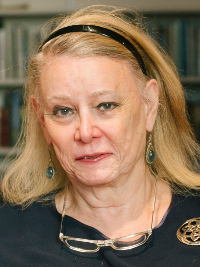
I have bad news for most readers of Barrelstrength. According to Edmund Fawcett’s comprehensive and insightful review of liberal thought, Liberalism, the Life of an Idea, we are all liberals.
Not Liberals, as in the Supreme Governing Party of Canada. And not ‘liberals’, that assemblage of social justice warriors, grievance identitarians, statists, and special interest groups that compose the left wing of the US Democratic party.
That’s okay with me. I am not a throne-and-altar reactionary, a racial supremacist, a Marxist, a Muslim supremacist or any species of totalitarian. Any label that can encompass Friedrich Hayek, J.S. Mill, Karl Popper, J.M. Keynes, Isaiah Berlin, Milton Friedman, and a host of practicing politicians of the 19th and 20th centuries, encompasses me.
Fawcett in his introduction writes:
“…There is no uncontested and purely philosophical test I can think of for the descriptive adequacy of an account of liberalism, and looking for one strikes me as a level confusion. Rich as liberalism is in ideas, liberals in history were not pursuing a philosophical theory. They were not doing applied philosophy. The philosophy of liberalism is an exhilirating, fruitful endeavour, but is beyond the range of this book, which is to tell an undertold political story.
“Looked at from the point of view of citizens, liberalism is a practice of politics for people who will not be bossed about or pushed around by a superior power, whether the power of the state, the power of wealth or the power of society . Looked at from the point of view of government, liberalism is a practical response by state and law to the predicament of capitalist modernity. From either point of view , my story takes liberalism naturalistically as a norm generated adaptation to historical circumstances, not as speculative anthropology, politico-moral philosophy, or social biology.” (pp.24-25)
Fawcett says it is pointless to seek enemies within the liberal tent; they have enough without.
His views of what constitutes liberalism is more akin to a pack of dogs each pulling one sled in loose fan-shaped harnesses, than a team harnessed in one direction. Sometimes one dog prevails over the others, sometimes they run smoothly together. “I take liberalism for a practice governed by four loose ideas” (p.11).
- Conflicts of interests or ideas are inescapable;
- Human power cannot be counted on to behave well;
- Human character and human society are not static but dynamic;
- Power is obliged to respect moral limits on what it compel people to do
His views of conservatism are less important and significantly misguided, but his focus is not on that topic.
Conservatives, to schematize, believed in the unchallengeable authority of rulers and custom. They thought of human character as largely set and of society’s scope for wholesale improvement as small or non-existent. They took liberal respect for people’s chosen enterprises and opinions. especially of they took unfamiliar or disruptive form, as harmful to orthodoxy and social order. It shortchanged duty, deference and obedience. Conservatives took society for a harmonious, orderly whole before critical modernity promoted self-seeking disaffection and liberal capitalism sowed discord between the classes.
By far the best analysis of the emotional bases of political differences is set out in Jonathan Haidt’s The Righteous Mind and we need not dilate upon Fawcett’s impoverished understanding of what makes ‘conservatives’ feel and think differently than ‘liberals’. From the point of view of Fawcett, it is highly likely that everyone reading this article is a ‘liberal’, as he understands the term, including all the people who consider themselves ‘conservative’. Each book has a different subject matter, and Haidt’s examines the differences among the sled dogs, not their common harness.
Insofar as Fawcett situates liberalism as an ongoing political response to the technological, social, and economic revolutions we have been experiencing since 1800, I think he is broadly right in the catholicity of his understanding of the phenomenon.
In short, Edmund Fawcett has produced a richly informative, concise, and badly needed review of the main streams of western thought since 1800. I urge any self-identified conservative not to concern himself with Fawcett’s limitations, and to enjoy a well-written, stimulating expansion of one’s understanding of two centuries’ worth of history and progress.










